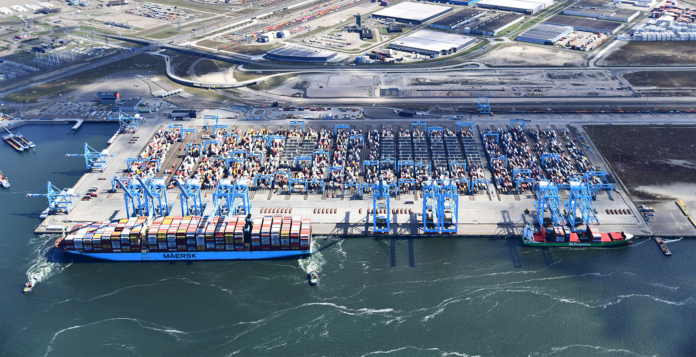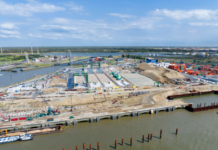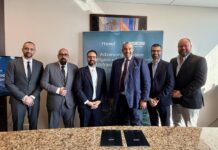
APM Terminals Maasvlakte II (MVII) has decided to equip its terminal with shore power from 2028, providing cargo vessels with clean energy while in port.
In this direction, Maersk’s operating arm APM Terminals has signed an agreement with Rotterdam Shore Power, a partnership between the Port of Rotterdam Authority and Eneco.
Connecting the vessels to the power grid at APM Terminals MVII will reduce CO2 emissions by almost 7,000 tonnes each year. It will also reduce nitrogen and particulate emissions with vessels using a total of about 13,000 MWh at the terminal annually.
The construction of shore power facilities fits within APM Terminal MVII’s objectives of becoming the most sustainable and efficient gateway to Europe. “Offering shore power to our clients is the next logistical step in our global ambition to minimise emissions in the maritime sector,” states Harold Kunst, CEO of APM Terminals MVII. “This collaboration with Rotterdam Shore Power is a significant step in our joint ambition to make the port of Rotterdam a global pioneer in the field of sustainability.”
“With this collaboration, we are adding a third deep-sea terminal to our shore power portfolio,” noted directors at Rotterdam Shore Power, Ina Barge and Tiemo Arkesteijn. “This is a significant step in making the port of Rotterdam sustainable and reducing emissions.”
APM Terminals MVII is already a CO2 emission-free terminal, with buildings and areas that are energy efficient and environmentally friendly. Most of the equipment contributes to the terminal’s sustainable character, including fully electric Lift Automated Guided Vehicles (L-AGVs), which transport containers, run on green energy generated by wind power and ensure minimum noise pollution.





